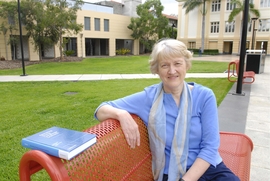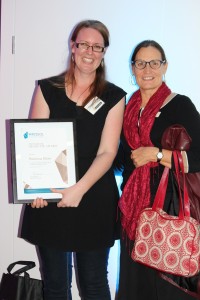ACTA held its annual general meeting on March 6th. After 2 years, the incumbent ACTA Executive of Adriano Truscott (President), Jenny Barnett (Vice President), Treasurer (Mairead Hannan) and Liz Davison (Secretary) decided to step down. They leave ACTA in a position of strength internally with improved finances, communication and administrative procedures, as well as externally, with new and important partnerships and projects with national education institutions. WATESOL thanks the Executive for their leadership, advocacy and support over this period.
The outgoing Executive has made way to a new and exciting team:
Michael Michell (ATESOL NSW – co-opted)
Karen Barber (WA Councillor)
Jennifer Mayers (ATESOL ACT – co-opted)
Margaret Turnbull (NSW Councillor)
The new group combines strong academic, schooling and adult sector credentials and we congratulate the new Executive on their election and commit our support to them to continue ACTA’s well-founded position as the national TESOL peak body and advocate. Adriano Truscott (WA Councillor) remains on the Executive as Immediate Past President, and will be attending the TESOL International Convention 2015 in Toronto to represent ACTA in TESOL affiliate meetings, present (See below) and hold a stand to promote ACTA 2016 and TESOL in Australia.
*** Below is description of the session Adriano Truscott is leading with educators Dr Mayra Daniel from Northern Illinois University and Dr Mari Rasmussen.
TESOL and Indigenous education in the US, Guatemala and Australia
We are to host a discussion that explores the language rights and cultural inclusion of Indigenous peoples in specific contexts in the US, Guatemala and Australia. In particular, we propose a role for TESOL in the acknowledgement and maintenance of Indigenous languages and cultures in the classroom and the involvement of community in formal education.
This panel addresses two intersecting domains of concern: the importance of L1 for socio-cultural well-being and continuance, and the importance of L1 in the development of additional languages, such as English or Spanish. By describing specific situations in each country, the panel will elaborate on how TESOL can enhance learning for aspiring multilingual Indigenous learners. TESOL leaders can promote a balanced approach to education that acknowledges learners’ identities whilst explicitly teaching that non-Indigenous ways can be part of mainstream cultures. This effort will help ensure ALL learners an education that is non-threatening, culturally responsive and respectful of home cultures and languages.




